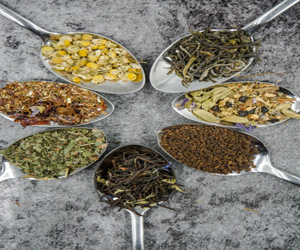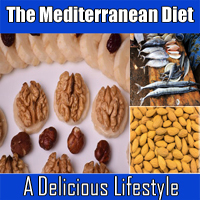


A Path To Optimal Health

Vitamins are essential micronutrients that play a vital role in maintaining our overall health and well-being. These organic compounds are required in small quantities, but their absence can lead to a range of health issues. Understanding the significance of adequate vitamin intake is fundamental to nurturing a healthy and vibrant life.
The Role Of Vitamins
Vitamins are involved in a multitude of physiological processes, including energy production, immune system function, and the maintenance of healthy skin, eyes, and bones. They act as cofactors in enzymatic reactions that are crucial for life. Each vitamin has specific roles and functions, and a deficiency in any of them can lead to various health problems.
Fat-Soluble vs. Water-Soluble Vitamins
Vitamins can be categorized into two groups: fat-soluble and water-soluble. Fat-soluble vitamins (A, D, E, and K) are stored in the body's fat tissues and liver. Excess amounts can accumulate, so it's essential to monitor their intake. Water-soluble vitamins (C and the B-complex vitamins, including B1, B2, B3, B5, B6, B7, B9, and B12) are not stored in the body, so regular intake is necessary to maintain optimal health.
The Importance Of A Balanced Diet
A balanced diet that includes a wide variety of foods is the most reliable way to ensure adequate vitamin intake. Fruits, vegetables, whole grains, lean proteins, and healthy fats should all be part of your daily menu. Eating a rainbow of fruits and vegetables is an excellent strategy to obtain a diverse range of vitamins and minerals.
Specific Vitamins And Their Benefits
Vitamin A: Known for its role in maintaining good vision, vitamin A also supports the immune system and healthy skin. It can be found in foods like carrots, sweet potatoes, and spinach.
Vitamin C: This antioxidant vitamin is crucial for collagen formation, wound healing, and immune function. Citrus fruits, strawberries, and bell peppers are rich sources.
Vitamin D: Essential for calcium absorption and bone health, vitamin D can be synthesized by the body when the skin is exposed to sunlight. Fatty fish like salmon and fortified dairy products are dietary sources.
Vitamin E: An antioxidant, vitamin E helps protect cells from damage and supports skin and eye health. It's found in nuts, seeds, and vegetable oils.
Vitamin K: Vitamin K plays a vital role in blood clotting and bone metabolism. Dark leafy greens and broccoli are good sources.
Vitamin B Complex: The B-complex vitamins have diverse roles, including energy production (B1, B2, B3, B5, B7), blood cell formation (B6, B9, B12), and nerve function (B12). Whole grains, legumes, and lean meats are good sources.
Supplements: A Complementary Approach
While a balanced diet is the primary source of vitamins, supplements can be helpful for individuals with specific dietary restrictions, medical conditions, or those who have difficulty absorbing certain nutrients. However, it's important to consult with a healthcare professional before starting any supplementation to avoid excessive intake, which can have adverse effects.
Understanding the significance of vitamin intake is a fundamental step toward maintaining optimal health. A balanced diet, rich in a variety of foods, is the most reliable way to ensure you're meeting your vitamin requirements. By prioritizing your vitamin intake, you can unlock the key to a healthy and vibrant life, where your body functions at its best and you're equipped to ward off many health issues.






Preserving Culinary Traditions Across Generations
 Timeless recipes have a universal appeal that transcends borders and cultures. While the specific dishes may differ from one region to another, the concept of time-honored cuisine is present everywhere. Whether it's the hearty, slow-cooked stews of Europe, the bold and flavorful curries of India, or the simple yet elegant dishes of Japan, every culture has its own set of timeless recipes that reflect its culinary heritage.
Timeless recipes have a universal appeal that transcends borders and cultures. While the specific dishes may differ from one region to another, the concept of time-honored cuisine is present everywhere. Whether it's the hearty, slow-cooked stews of Europe, the bold and flavorful curries of India, or the simple yet elegant dishes of Japan, every culture has its own set of timeless recipes that reflect its culinary heritage.
Beyond their delicious flavors and adaptability, timeless recipes play a vital role in preserving culinary traditions and sharing a piece of history.
Where Science And Craft Converge
 The choice of ingredients plays a pivotal role in brewing. Whether it's the selection of coffee beans, tea leaves, hops, malt, or other elements, the brewer becomes a curator, choosing the best raw materials to create a masterpiece. Much like an artist selecting their palette, the brewer's choices will dictate the colors and flavors of the final creation.
The choice of ingredients plays a pivotal role in brewing. Whether it's the selection of coffee beans, tea leaves, hops, malt, or other elements, the brewer becomes a curator, choosing the best raw materials to create a masterpiece. Much like an artist selecting their palette, the brewer's choices will dictate the colors and flavors of the final creation.
Temperature is a critical factor in brewing. The ideal range may vary depending on the beverage and the brewing method, but precision is non-negotiable. A slight variation in temperature can lead to vastly different outcomes. Coffee brewed at the wrong temperature can become over-extracted or under-extracted, while beer fermentation temperatures can profoundly affect the taste and aroma.
From Kitchen To Plate
 Nurturing Ingredients: The choice of ingredients can be a powerful source of inspiration. Fresh, seasonal, and locally sourced ingredients often take center stage in the creative process. The urge to transform these ingredients into a delicious meal can drive home cooks to experiment with innovative recipes.
Nurturing Ingredients: The choice of ingredients can be a powerful source of inspiration. Fresh, seasonal, and locally sourced ingredients often take center stage in the creative process. The urge to transform these ingredients into a delicious meal can drive home cooks to experiment with innovative recipes.
Cookbooks And Celebrity Chefs: Cookbooks and celebrity chefs have an enduring influence on cooking inspiration. The well-curated pages of a cookbook or the charismatic presentations of celebrity chefs on television can spark ideas and encourage home cooks to try new recipes and techniques. The artful fusion of flavors and methods can be especially inspiring.
Personal History And Memories: Many of us find inspiration in our personal history and memories. Grandma's apple pie, dad's famous barbecue sauce, or the scent of holiday cookies can transport us back in time, rekindling memories and emotions that inspire us to recreate those beloved dishes.
Creativity As A Driving Force: Cooking inspiration is a powerful force that fuels creativity in the kitchen. It encourages home cooks to think outside the box, experiment with ingredients, and create their unique signature dishes. This experimentation often leads to culinary masterpieces that are deeply satisfying and reflective of the cook's personal style.
Nourishing Your Body And Mind
 Nutrient Density
Nutrient Density
Whole foods are rich in nutrients, making them an essential part of a healthy diet. They provide an abundance of vitamins, minerals, and antioxidants that nourish the body, strengthen the immune system, and reduce the risk of chronic diseases. Because they are dense in nutrients, they help you meet your daily nutritional requirements with fewer calories, which can support weight management and overall health.
Dietary Fiber
Whole foods, particularly fruits, vegetables, and whole grains, are excellent sources of dietary fiber. Fiber is crucial for digestive health, as it promotes regular bowel movements, prevents constipation, and supports a healthy gut microbiome. Additionally, fiber helps regulate blood sugar levels, reducing the risk of diabetes, and promotes a feeling of fullness, aiding in weight control.
Natural Energy Sources
Whole foods provide a steady source of energy. They release their nutrients more slowly into the bloodstream, preventing the rapid spikes and crashes in blood sugar associated with processed foods. This steadier energy flow helps maintain alertness, focus, and sustained physical and mental endurance throughout the day.
Exploring The Benefits Of Organic Options
 Supporting Sustainable Agriculture: Organic options are closely linked to sustainable agriculture, which promotes ethical and environmentally friendly practices. Sustainable farming methods not only protect the environment but also support the livelihoods of farmers. By purchasing organic products, you're contributing to a more sustainable and fair agricultural system.
Supporting Sustainable Agriculture: Organic options are closely linked to sustainable agriculture, which promotes ethical and environmentally friendly practices. Sustainable farming methods not only protect the environment but also support the livelihoods of farmers. By purchasing organic products, you're contributing to a more sustainable and fair agricultural system.
Cleaner And Safer Cosmetics: Organic options extend beyond the realm of food. Organic cosmetics and personal care products are also available, offering consumers a safer and more natural way to care for their bodies. These products are typically free from harmful synthetic chemicals, making them a healthier choice for both your skin and the planet.
Transparency And Certification: Organic options are subject to stringent certification standards in many countries. These standards ensure that products labeled as "organic" meet specific criteria. This certification provides consumers with transparency and confidence in the products they purchase.
A Personal Choice With Global Impact: Choosing organic options is a personal decision that can have a significant impact on a global scale. It not only benefits your health and well-being but also contributes to a more sustainable and environmentally conscious future.





